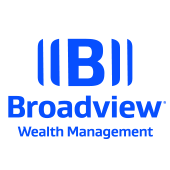
Retiring on Your Own Terms: 7 Ways You Can Work Toward an Early Retirement
Many dream of working toward early retirement, but getting there generally doesn’t happen by accident.
Retiring early requires financial independence that can last for decades, but that is much easier said than done. To get there requires taking steps and staying focused. Consider these seven ideas to help you prepare for an early retirement:
1. Start Early
Starting early in preparation for an early retirement is essential because it allows you to harness the power of time. When it comes to money and working toward growing your wealth, time is potentially the most valuable variable for several reasons:
- The longer you save, the more money you can accumulate.
- Retirement planning early as possible allows you to make and learn from a few mistakes.
- Time allows compounding to kick in.
2. Create a Spending and Saving Budget
A savings and spending budget is vital if you are interested in pursuing an early retirement. Learning how to budget and be disciplined when it comes to money helps to create good spending and saving habits. It is hard at first to change the way you are used to living, but it is essential if you want to grow your wealth. The thing about saving is that small increments grow over time. You don't have to try and do it all at once and put yourself in financial distress. Learning to manage your spending takes time, but after a while, it becomes routine.
3. Invest
When creating a strategy for early retirement, determining where you put the money you save is critical. The idea is to grow your money over a long period of time by accumulating savings and using the magic of compounding. Compound interest applies to the initial principal of a loan or investment and the previous interest. Essentially, you are earning interest on the interest. The trick is to wait long enough for this compounding to take effect, which takes decades.
4. Avoid or Pay Off Debt
When it comes to debt, try to avoid it if you can. Loans create a financial burden, where money you could be putting toward your savings and investments is lost. With most debts, there is interest involved, so you are paying more money than just the money you borrowed for something you probably couldn’t afford in the first place.
5. Consider a Health Savings Account (HSA)
For some individuals an HSA might be a beneficial strategy. This is particularly true if you don’t have to use it since unspent funds roll over from year to year. Then, you can add to the tax-free savings to help pay for medical care down the road with tax-free withdrawals. In addition to the absence of a “use it or lose it” policy, the money in your account is yours for life – even if you change jobs, change your health plan, or retire.
You should keep in mind some of the cons to having an HSA plan, for example, how it is open only to people with a high-deductible health insurance plan (HDHP). Before the insurance kicks in, you may have to pay a significant amount out-of-pocket. There are also risks involved if HSA funds are used for non-qualified expenses, which can lead to taxes and penalties.
6. Go Your Own Way
Like the Fleetwood Mac lyrics, “You can go your own way,” there is great wisdom in that statement, especially when it comes to money, spending, and saving. Everybody lives different lives, with individual dreams and personalized strategies and reasons for why we invest, spend, and save. The trick is not to get caught up in what other people do with their money because you aren’t them. Figure out what you want and stick to your own plan.
7. Consult a Financial Professional
Working on growing your wealth and creating a retirement strategy involves financial decisions that impact both the short and long term. Consider consulting a financial professional to help you figure out the most beneficial steps you can pragmatically take without leaving yourself and your family with financial stress or hardship.
Important Disclosures:
The opinions voiced in this material are for general information only and are not intended to provide specific advice or recommendations for any individual.
All information is believed to be from reliable sources; however, LPL Financial makes no representation as to its completeness or accuracy.
Sources:
How Much Should I Put In My Health Savings Account(HSA)? (bankofamerica.com)
This article was prepared by LPL Marketing Solutions
LPL Tracking # 599194


